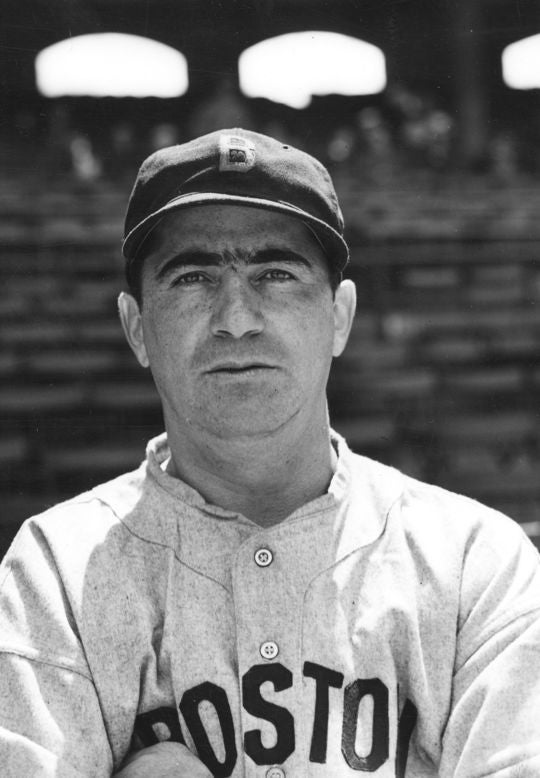I didn't even expect it to do that well. I didn't even think the movie would even get produced, although a movie about it was being talked about for some years. In a world (as they say in the movie trailers) in which people flock to see Avengers movies and Incredibles and Deadpool and Jurassic World pictures, who would care about a movie about Moe Berg?
Right here, Dude. And maybe it's because I love the whole legacy of Moe Berg, and maybe because I share his love of eccentric behavior, but I loved the picture, which we saw on the pay-per-view the other night. Peggy loved it too, even though she is not such a fan of idiosyncratic behavior, since she lives in a house full of it.
First, who was Moe?
Morris "Moe" Berg (March 2, 1902 – May 29, 1972) was New York born, son of a pharmacist, brother of a doctor and a schoolteacher. Moe went to Princeton, Columbia U. Law, and the Sorbonne in Paris, placing him leaps and bounds ahead of the average baseball player, which he also was. So great was he in college that he went to the big leagues, where he made a nice living as a catcher for 15 years. He was never a star, and one reason for that was that he really was not as interested in baseball as he was in his other activities: learning things and going places.
He spoke a dozen languages and made it a habit to read 10 newspapers every day, as well as the suitcases full of books he traveled with. He wore black suits and white shirts every day. He would not read a newspaper if anyone else had read it before him, and he cultivated a habit of disappearing from view suddenly, even if he were in the middle of a conversation.
Because Japanese was one of the tongues he spoke in, he accompanied some other American ballplayers to Japan for a tour and series of exhibition games, and Moe dressed in traditional kimono to visit a hospital - but instead of visiting anyone, he climbed to the roof and took aerial footage of downtown Tokyo.
 But his baseball career ended as World War II began, and he offered his extensive knowledge of pretty much everything about everything to his country. He served the war effort as a spy. The movies he brought back from Japan served very well as background information for the generals, who also asked Moe to look into whether Germany was building an atomic bomb.
But his baseball career ended as World War II began, and he offered his extensive knowledge of pretty much everything about everything to his country. He served the war effort as a spy. The movies he brought back from Japan served very well as background information for the generals, who also asked Moe to look into whether Germany was building an atomic bomb.And thereby hangs the tale of the movie, which we enjoyed a lot. I guess it was a good idea to have the movie be about spy stuff rather than Moe and his bizarre habits. He was awarded the Presidential Medal of Honor for his valor during the war, but refused to accept it (his sister accepted it for him after his death.)
A baseball fan until the end, his last words were, "How did the Mets do today?"

No comments:
Post a Comment